A condemned house is one that has been deemed unfit for habitation by an official government agency or building inspector. This can be due to a variety of factors, including the structure's age, disrepair, unsanitary living conditions, and potential safety hazards.
A condemned house is often considered a threat to both the health and welfare of its inhabitants as well as the surrounding community. The owner of a condemned house is responsible for making any necessary repairs or improvements to bring it up to code before any occupants are allowed to move in.
In extreme cases, the property may need to be demolished entirely in order for it to meet local safety standards. If a condemned house cannot be repaired or brought up to code, then its ownership may be transferred from the original owner to another party who is willing and able to make the necessary changes.
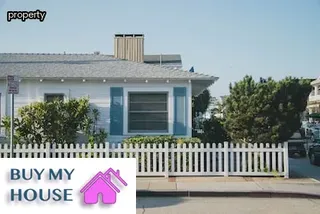
When it comes to condemned homes, there are certain signs you should be aware of in order to identify them. One important sign is the presence of a condemnation notice from the local government - these notices may be posted on the home’s door or exterior walls, or can even be found in public records.
In addition, if you see a padlocked entrance or boarded-up windows and doors, these are common signs of a condemned home. You may also notice an accumulation of trash and debris near the house, as well as visible signs of disrepair such as broken windows and crumbling walls.
Moreover, if the home is abandoned for a long period of time with no upkeep being done by its owners, this could indicate that it has been condemned. Finally, some cities have ordinances which require homeowners to maintain their properties at a certain standard, so if this is not being done then it could point towards condemnation.
Condemned houses and their owners are faced with a unique situation that requires specialized knowledge to navigate. Depending on the jurisdiction in which the house is located, there may be differences in the rules governing what happens when a house is condemned.
Generally, if a house is deemed uninhabitable or unfit for human habitation, it will be declared "condemned" by local governments and organizations. There are two basic types of condemnation - administrative and legal.
Administrative condemnation occurs when a local government or organization declares a house to be unfit for human habitation, usually due to structural issues or health risks posed by the house's condition. In this case, it will be up to the owner of the house to make repairs or demolish the structure in order to comply with local regulations and laws.
Legal condemnation occurs when a court orders that a property must be demolished because it poses an imminent danger to public safety or health. In these cases, the owner may not have any opportunity to repair or improve the property before demolition takes place.
Both types of condemnation can result in financial hardship for homeowners as they must pay for repairs or demolition costs out-of-pocket.

When a house is condemned, it is deemed unfit for human habitation due to safety reasons. There can be many reasons why a house may be condemned, including structural damage caused by natural disasters, infestations of pests or rodents, and general disrepair.
In some cases, the owner of the property may have neglected to make necessary repairs or improvements that would bring the home back up to code. Other times, the owner may have done something illegal on their property that resulted in condemnation.
In cases such as these, the local authorities may step in and force owners to make changes in order to bring their property up to acceptable standards or face legal consequences. Regardless of the reason for condemnation, it’s important that homeowners take all necessary steps to ensure their homes meet all applicable codes before they are placed on the market.
Owning and living in a condemned house is a complicated legal matter. Firstly, it depends on the laws of the locality in which the house is located.
Some areas may have strict regulations forbidding any occupancy of condemned dwellings, while other areas may have more lenient policies allowing for their habitation. Before attempting to move into a condemned house, owners should familiarize themselves with applicable local laws and zoning regulations to ensure they are not breaking any rules or laws.
Additionally, it is important to make sure that the house has been properly inspected by an official representative of the local government before considering inhabiting it, as this will verify that all of the necessary safety requirements are in place. Furthermore, owners should be aware of any potential liabilities associated with living in a condemned property.
Depending on the situation, they may need to obtain certain permits from their local authority or insurance company before being allowed to move in. Ultimately, understanding all of the relevant legalities and requirements can help one determine whether living in a condemned house is legally allowed.
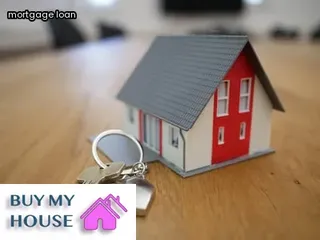
Refurbishing and restoring a condemned home can seem daunting, but it is possible and can be a rewarding experience for the courageous homeowner. The first step to take is to consult with your local municipality or county office and inquire about any legal requirements that must be met before you can begin work.
In many cases, permits are required in order to make changes or repairs on a condemned home. Additionally, the owner of a condemned house will need to submit detailed plans which detail what renovations they intend to make before being approved.
Once all necessary paperwork has been filed, it's time to start the refurbishment process. Depending on the extent of damage caused by disrepair, you may need to hire contractors who specialize in repair work for condemned homes.
Whether it be replacing faulty wiring, repairing broken pipes, addressing structural issues such as foundation problems, or simply cleaning up debris - there is no shortage of repairs that must be made in order for the home to become habitable again. As with any project, budgeting properly and making sure not to cut corners are key components of successful refurbishment.
Lastly, don’t forget to check local zoning laws prior to starting construction or else risk having your hard work undone due to unforeseen restrictions!.
Living in a condemned property can have a major impact on a person's life. Not only is there the risk of physical harm due to hazardous conditions, but living in such a place can cause psychological distress and emotional damage.
Those who own such properties may be subject to eviction or fines, not to mention the loss of their investment. Furthermore, the stigma associated with living in a condemned house can affect job prospects and other potential opportunities.
Property owners must understand all of the risks associated with owning such a home and take proactive steps to ensure that they are able to address any issues before they become too costly or time-consuming. It is also important for those living in these properties to understand the legal implications that come with living in an unsafe environment and how best to protect themselves from any repercussions.
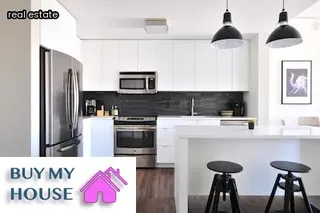
Establishing ownership of a condemned property can be a tricky task, especially if the legal title has not been transferred since the house was first built. To determine who owns a condemned house, it is important to understand the laws that govern such properties and the process for determining ownership.
The best way to start is to search public records related to the property in question. This could include deeds, mortgages, liens, and other documents related to the transfer of ownership.
If this does not yield any results, then you may need to contact local authorities or organizations for assistance in locating the owner's identity or contact information. It is also important to consider any other potential stakeholders involved with the house—such as creditors or lien holders—and make sure that all parties are informed about your investigation into establishing ownership.
Ultimately, it may be necessary to go through court proceedings if disagreements arise over who owns a condemned property.
If you own a property that has been condemned by the local government, it can be incredibly difficult to overturn the decision. However, there may be certain circumstances in which appealing a property’s condemnation status is possible.
To begin, you must first understand why the property has been condemned and what regulations are in place that caused it to be deemed unfit for occupancy. In some cases, the owner may be able to appeal if they can prove that the repairs needed to bring the structure up to code have been completed.
Additionally, homeowners may also be able to argue a case of economic hardship if they cannot afford the repairs or if their income has decreased significantly due to COVID-19. Ultimately, it is important for owners of condemned properties to research local laws and regulations as well as seek legal advice from an experienced attorney or real estate agent in order to determine whether an appeal is feasible.

When it comes to eminent domain, there are several factors that need to be considered when evaluating homes and their owners. These include the public use or purpose of the property, the character of the neighborhood and surrounding properties, the economic impact of taking the property, whether relocation assistance is available for those displaced by a condemnation order, and how much money is offered for the property.
Additionally, other aspects such as environmental protection laws and local zoning regulations can play a role in determining if a home should be condemned or not. State and federal agencies such as HUD also have guidelines that must be met before a home can be taken through eminent domain.
Ultimately, all these factors work together to determine if a home should be condemned or not.
Investing in buying and selling condemned houses can be both lucrative and risky. Before deciding to invest, it is important to understand the legalities involved and the potential risks associated with this kind of transaction.
It is essential to understand the local laws surrounding condemned properties and find out who owns the property before making an offer. The owner of a condemned house must agree to sell it in order for you to purchase it, but they may not always have the legal authority to do so.
You should also research what renovations are allowed by law and if there are any environmental hazards present that could affect your investment. Additionally, you need to be aware of any liens or other debts attached to the property that could negatively impact your bottom line.
By educating yourself about these issues and conducting due diligence, you can make a more informed decision on whether or not buying and selling condemned houses is a sound financial investment for you.
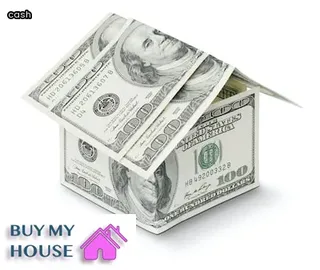
There are certainly financial incentives for repurposing a condemned house, which could benefit the owners of these properties. The first step is to understand the legal implications of purchasing a condemned home and what it takes to bring it back up to code.
Depending on the location, state, and local government may offer grants and tax credits for those who take on this type of endeavor. In some cases, these funds can help offset the cost of repairs, making it more affordable to renovate and restore a condemned house.
Additionally, homeowners may be able to access special financing programs designed specifically for this purpose. By taking advantage of these incentives, owners can save money while also improving their property value by transforming a condemned house into something that is safe and desirable.
Government agencies are responsible for dealing with condemned houses and their owners in order to protect public health and safety. When a property is deemed unfit for living conditions due to contamination, the government may take steps to ensure that it is not inhabited.
This can include relocating people from the contaminated area, assessing the property for potential hazards, and conducting an environmental cleanup of the site. The agency may also work with local governments and other organizations to identify resources available to help owners of these properties pay for any necessary repairs or renovations.
In addition, the agency may also provide assistance in finding new housing for those displaced by contamination. Ultimately, it is up to government agencies to ensure that contaminated properties are not put back into circulation without taking the necessary safety precautions.
A house can be condemned for a variety of reasons, ranging from structural issues to health and safety hazards. Structural issues may include foundation damage, termite infestations, or fire damage.
Health and safety hazards that could lead to a condemnation include a lack of electricity, water, or heat in the home; mold or mildew build up; infestations of insects or animals; hazardous materials such as asbestos; and no working smoke detectors. If an owner is unable to make the necessary repairs or cannot afford them, the house may be condemned by local authorities.
Owners of condemned houses are typically responsible for bringing the property up to code in order to avoid eviction or fines.
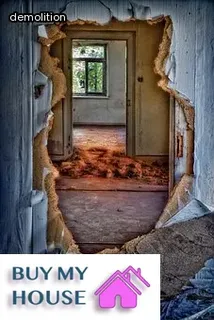
When it comes to the question of whether or not a house can be condemned due to mold, the answer is yes. This is especially true if the mold has caused structural damage to the home, creating a hazard for potential occupants.
In some cases, a local municipality or health department can order an inspection of the property and issue a condemnation order if they believe it is unsafe for habitation. The owner of the home may also be held liable for any damages caused by the mold, which could include medical bills for any occupants who were exposed to hazardous levels of mold.
It is important to understand that even if your house does not appear to have a visible mold problem, elevated levels of moisture can still cause hidden mold growth inside walls and other hard-to-reach areas. Therefore, it is essential to regularly inspect your home for signs of water damage and address any dampness promptly with professional remediation services.
When a house has been condemned, it means that the building is not suitable for living in or that it poses an immediate safety risk. The owner must take action to make sure the home is brought up to safe living standards before anyone can live there again.
Depending on the local area, this may require repairs to the structure itself or changes to the surrounding area. The owner will also need to notify local authorities and obtain appropriate permits.
In some cases, they may even be required to demolish the structure and rebuild it entirely. If all of these conditions are met, then the house will be able to be occupied once again, but owners should be aware that any changes made must adhere to local regulations in order to remain safe.
The process of condemnation is a legal one that is used to determine if a property is unfit for habitation. In order to condemn a house, the local government must conduct an inspection and issue a notice of violation.
This notice states that the house has been found to be uninhabitable due to safety or health hazards. If the owner fails to address these issues in a timely manner, the government may then proceed with condemnation proceedings.
After all requirements are met, the court can then issue a formal order of condemnation, which states that the property will be taken out of circulation for public use and benefit. The resulting compensation is usually paid to the former owners or their heirs.
It’s important to understand that even though a property has been condemned, it doesn’t necessarily mean that its current owners are at fault or responsible for its condition; rather, they may have inherited it from another owner who did not maintain it properly over time.